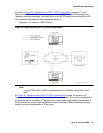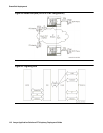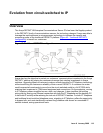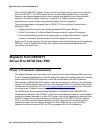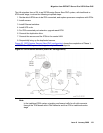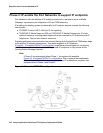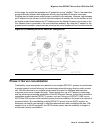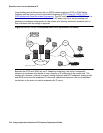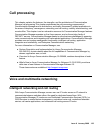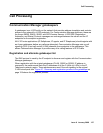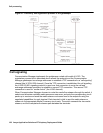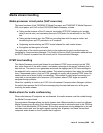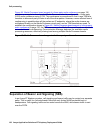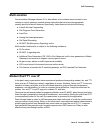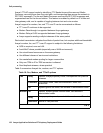
Issue 6 January 2008 125
Call processing
This chapter explains the features, the strengths, and the architecture of Communication
Manager call processing.This chapter emphasizes the call processing components of
Communication Manager and its architecture, and briefly discusses IP-related applications in
the areas of telephony, convergence, networking and call routing, mobility, telecommuting, and
remote office. This chapter is not an exhaustive resource for Communication Manager features.
Communication Manager operates on the Avaya servers, and on the existing family of
DEFINITY servers. Communication Manager seeks to solve business challenges by powering
voice communications and integrating with value-added applications. Communication Manager
provides user and system management functionality, intelligent call routing, application
integration and extensibility, and Enterprise Communications networking.
For more information on Communication Manager, see:
● Feature Description and Implementation for Avaya Communication Manager,
555-245-205, contains details about the full capabilities of Communication Manager by
release, application area, or both.
● Overview for Avaya Communication Manager, 03-300468, contains descriptions of each
feature.
● What’s New in Avaya Communication Manager for Release 4.0, 03-601528, provides a
delta view of new features in Communication Manager Release 4.0.
These documents are available at http://support.avaya.com
.
Voice and multimedia networking
Intelligent networking and call routing
With Avaya Communication Manager, servers can use IP trunks across an IP network to
communicate between switches without the need for dedicated leased lines. With
Communication Manager, IP trunks can use Distributed Communication Services (DCS+) or
QSIG Services to extend feature transparency, centralized voice mail, centralized attendant
service, call center applications, and enhanced call routing across IP trunks.



